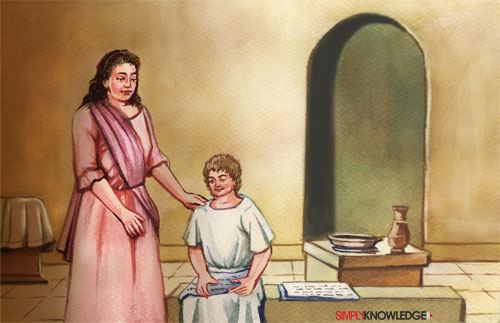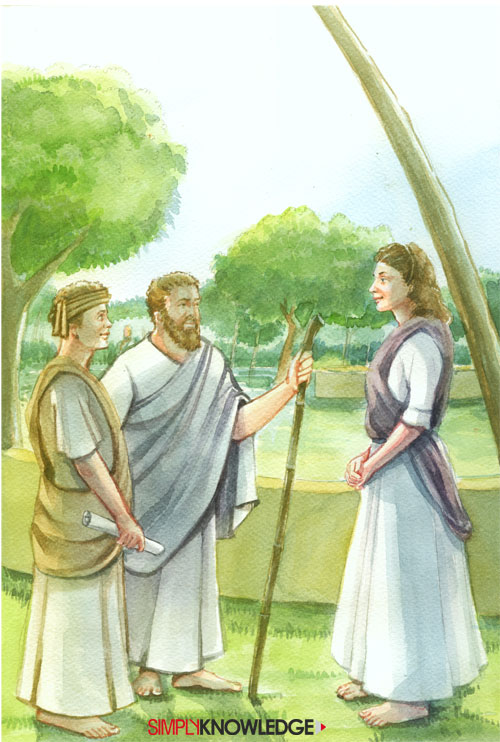



Introduction
Introduction
“It is necessary for a woman to seek genuine virtue so that she will be just, brave, and prudent. She should exercise frugality and shun vanity. These virtues will make help herself, her husband, her children, and her family. Because such a woman will perform their duties towards their community and city and if they become rulers, they will lead their kingdom virtuously,” said Perictione, who wrote a comprehensive treatise titled ‘The Harmony of Women’. The treatise is unique in ancient psychology because it speaks about how women should execute their duties as wives, mothers, citizens and rulers. Interestingly, this book, authored some 2,500 years ago by Perictione, a woman of royal lineage, contains axioms that are highly relevant in the modern world which is plagued with immorality and avarice, among other evils.
Perictione was no ordinary woman. She is a descendant of Solon, the greatest Athenian lawmaker who replaced the actual Draconian laws with more humane ones. She is the sister of Charmides and the niece of Critias - two prominent personalities of the infamous Thirty Tyrants who ruled Athens for nearly a year following its defeat in the Peloponnesian War. Further, Perictione is one of the unsung teachers of Socrates and the mother of his greatest student, Plato. She was not the first ancient Greek woman who wrote about marital or female psychology. Yet her works are unique since they preach austerity and unflinching devotion to the husband, albeit in stark paradox to her wealthy upbringing and two marriages.
Birth

Birth
Since women in ancient Greece were not generally recognized as thinkers, very few details about Perictione’s life are available. From information gathered from some of her works and parts of her works being quoted by other thinkers, it is generally believed Perictione was born around 425BC. The names of her parents, who were also of royal lineage, are not known, though she traces her ancestry to the great lawmaker of Athens, Solon. It is not known whether her ancestry with Solon was from her paternal or maternal side. Further, two of her relatives, Charmides, an uncle and Critias, a cousin, were powerful enough to become members of the notorious 30 Tyrants, which clearly indicate she was born in an affluent, aristocratic family.
Life

Life
That Perictione was highly educated is apparent from her works and her demeanour, which has been broadly described as regal yet simple, benevolent and virtuous. Her first husband was Ariston of Collytus- a descendant of King Codrus of the ruling family of Athens, whom she married after a couple of years of courtship. Legends claim, Ariston either molested or attempted to force Perictione into physical intimacy but some supernatural occurrence deterred him, though this account is dubious.
Perictione and Ariston bore three children, which included three sons, Plato, Adeimantus and Glaucon, and a daughter named Potone. However, Ariston passed away when Plato was rather young.
Upon Ariston’s demise, Perictione remarried her mother’s brother, Pyrilempes, a close aide of the Athenian aristocrat, Pericles. Pyrilempes was the Athenian envoy to the Persian court and hence, was often away from home, on official work. He had a son, Demus from his previous marriage and Perictione bore Pyrilempes his second son, Antiphon.
As a result, Perictione was encumbered with caring for six children despite assistance from servants. However, that did not dampen her enthusiasm towards learning the various schools of thought. She would often discreetly listen to debates between various thinkers hosted by the aristocrat Pericles when attending with her husband, whenever possible.
Perictione and Plato
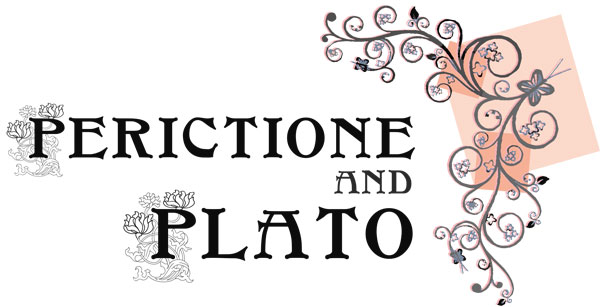
Perictione and Plato
Perictione realized that Plato was exceptionally talented. Other than regular education, she also began teaching him some doctrines she had theorized by attending debates between thinkers and aristocrats. She also attended some of the public meetings held by Socrates and was impressed by his eccentric mannerisms.
The unique teachings of Socrates enamoured Perictione, leading her to believe her son Plato would study well under this great thinker. Further, she also felt it would in some ways, compensate for the lack of parental attention to Plato, since her husband Pyrilempes, due to his official duties, was unable to give him vital fatherly guidance.
As mother, Perictione had a great influence upon Plato’s thoughts as well, which were shaped mainly from Socratic teachings. Many historians credit Perictione for encouraging Plato to permit women to join the school he later founded- the Academy- a unique distinction at the time and acclaimed to date.
Perictione and Socrates
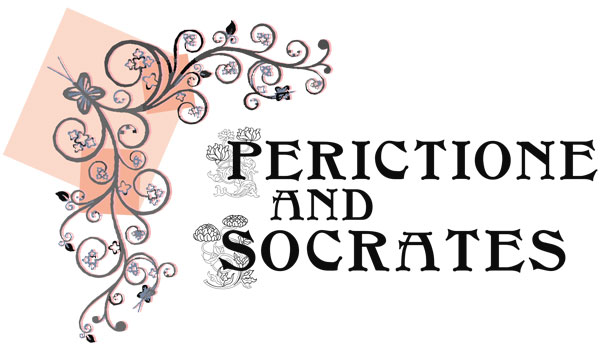
Perictione and Socrates
Young Plato, who was already enchanted by Socratic doctrines, began studying under the great thinker. Perictione would visit Socrates often or invite the eccentric teacher to their palatial home in Athens. The two often debated among themselves, their diverse doctrines and thoughts. The renowned ancient Greek historian and chronicler, Diogenes Laertius mentions that Perictione influenced some Socratic thoughts.
A famous Socratic quote: “A system of morality which is based on relative emotional values is a mere illusion, a thoroughly vulgar conception which has nothing sound in it and nothing true,” is said to be inspired by Perictione, who believed that morals based on perceived emotions, are fallacious unless they culminate into befitting action. Perictione’s treatise, ‘The Harmony of Women’ is based on this very principle which she propounded. Her second treatise ‘On Wisdom’ is a blend of her thoughts combined with some Socratic principles. Sadly, only a few fragments of her treatises are extant.
The friendship between Perictione and Socrates thrived over the years. To an extent, Perictione visited Socrates when he was incarcerated on charges of sedition against Athens by turning a blind eye to the atrocities committed by the Thirty Tyrants and openly praising the Spartans- their archenemies. She tried to use the good offices of her husband Pyrilempes to get Socrates condoned and spared of the death sentence. Perictione also met Socrates on the day he was executed by Hemlock, while some records claim she was present till he breathed his last.
Death

Death
Perictione continued her studies into various schools of thought and formed her own doctrines, which mainly focused around women, virtues and wisdom. She painstakingly compiled her studies in the two treatises, ‘The Harmony of Wisdom’ since during her era, Athens was fighting the Peloponnesian war and the city-state and its parts were witnessing moral depravity among women who were widowed due to their husbands being martyred in battles.
Specific dates about when Perictione breathed her last are lost to antiquity. From writings of various thinkers, it is believed she lived till the age of around 80 and died around the 385BC, plunging the Academy and its students, especially her illustrious son, Plato, in prolonged bereavement.
Thoughts on material pleasures
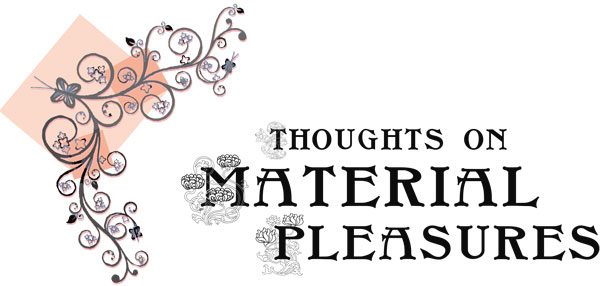
Thoughts on material pleasures
Perictione also believed that women can lead the family to live a content life, if they set a proper example that can alleviate the financial pressures on the husband and teach their kids a vital lesson in simple life.
Perictione wrote: “A woman should exercise astute moderation regarding her nourishment and food, dressing and grooming in every respect. Women who indulge in lavish meals, exotic foods from foreign lands, gorge on expensive edibles, spend on expensive garments without need, wear exquisite jewellery jaded with rare gems, style their hair for flaunting their beauty, use exorbitantly priced perfumes and use cosmetics to enhance their faces, in reality, commit a sin.” She extols women to bathe occasionally.
This axiom meant at discouraging ostentatious expenses, is also aimed as a deterrent to other men, since males have an insidious character of lusting for well groomed women. In ancient Greece, married women from the proletariat and bourgeoisie were often taken as ‘heteras’ or mistresses by rich nobles, causing them to ditch their husband and families in the quest for an opulent life.
On Spirituality
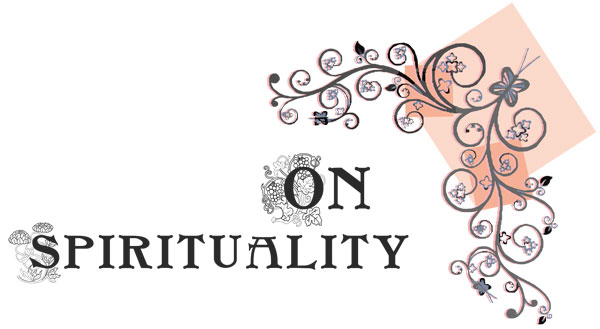
On Spirituality
Bearing in mind the need to fear a divine power, Perictione, in her treatise, calls upon women to obey the religious customs and traditions of the country as well as strictly adhere to the laws of the land. She goes further to say: “Other than gods, a woman should venerate her parents because it was divine grace that helped them bear her in their family. She should not covet her husband’s property but maintain the sanctity of the couple’s bed. Through this, she will prove she loves her family and servants while showing piety towards the lesser fortunate. A woman’s speech should never be profane. Instead, she should promote virtue through her speech.”
As mentioned earlier, most axioms of Perictione are relevant till date, albeit with slight modifications to suit modern concepts. And Perictione, despite being of royal lineage and affluent, was an epitome of her teachings because she practiced them in totality.
The Controversies

The Controversies
Ancient Grecians, due to then prevalent mores, disregarded doctrines on psychology and thoughts by women of the era. They were generally considered as amateurs whose interest was purely academic rather than for preaching and gaining followers. Consequently, the works of several women thinkers were not publicized or maintained. Some, including the works of Perictione, are mainly lost and only a few fragments survive.
This has led to certain controversies among various ancient and modern historians. Some contend that the treatise ‘The Harmony of Women’ was not authored by Perictione, a follower and teacher of Socrates and mother of Plato. They claim, extant fragments of the treatise were written in Ionic Greek language commonly used in the 4th and 3rd Century BC while the other treatise credited to Perictione, ‘On Wisdom’ is written in Doric Greek, which was used much later.
Some other historians claim, another woman thinker bearing the same name flourished much later than Perictione, the mother of Plato. For disambiguation, historians title the earlier thinker as Perictione-I and the later one as Perictione-II. They aver, at least one, not both of these treatises could have been authored by Perictione-II.
Yet another group believes these treatises were never authored by any woman. They suspect, some male followers of the school founded by Pythagoras, the ancient Greek thinker and mathematician could have penned these treatises and used the name ‘Perictione’ for anonymity or as a pen-name.
Regardless, ‘The Harmony of Women’ is a treatise based purely on psychology and forms some basis of modern day Family Psychology.
Legacy

Legacy
Perictione left a lasting legacy for women of Athens, though changing fortunes of the city-state surrounded by belligerent neighbours made it somewhat impossible for these teachings to be practiced.
On promiscuity: “If a woman subdues her desire and anger, a divine harmony will be produced. She will not be prone to illicit relationships. Instead, she will treat her husband, children and all her family with utmost affection. Women who crave for carnal pleasures with other men become a bane to their family and society. Such licentious women neglect their families and are hostile to the husband, children and others. They will plot against the husband, spread false tales about him while trying to falsely portray themselves as victims of maltreatment to justify their own evil behaviour. They will assume a demeanour of benevolence and piety to conceal their sinful acts. Consequently, her actions will destroy the family,” said Perictione.
A necessary evil: Perictione also laid guidelines for women on how to become ideal, virtuous wives while retaining their respect in the society, regardless of the vagaries of matrimony. She said: “A good wife should be at her husband’s side and never betray him regardless of whether he profits from his endeavours or loses due to treachery or wrong judgement, when he is sick or becomes incontinent for any reason and ill tempered due to intoxicating substances.”
Surprisingly, Perictione permits men to have extra-marital affairs but strictly forbids women from doing the same, since she knew females are prone to being reviled by the society for such digressions while men are spared ignominy. “It is necessary that she should submit to the law with equanimity and not be jealous of her husband’s lovers. A good wife should patiently bear her husband’s wrath and insults and accusations cheerfully. Because these traits endear the wife to her husband and indicates she loves her family,” Perictione propounded.
Most modern women will balk at Perictione’s teachings since they are tantamount to justifying slavery. Yet, during her era, in the context of the Peloponnesian War, men returning home from battlefields, often physically and mentally scarred suffered from immense trauma and sought solace through alcohol and other vices.
Despite, it is a proven fact that wives of derelict men who tolerate such nuances from their husbands and help them undergo treatment and rehabilitation of their addict husbands, often find themselves leading a happy, prosperous life, once the errant spouse has recovered and bid adieu to his vices.
Psychology of Perictione | 0 Comments >>
0 Comments
Leave Comment
Your email address will not be published. Required fields are marked.

